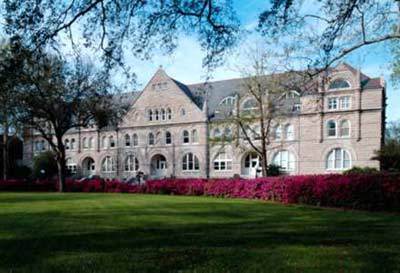Introduction
You’ll know why students love Tulane University the moment you step off of the St. Charles streetcar onto the azalea-filled campus in “uptown” New Orleans. Since its founding in 1834, Tulane, has been both educating and entertaining students for generations. Tracing its roots back to the Medical College of Louisiana, the school owes its name to a wealthy New Jersey merchant, Paul Tulane, who earned his fortune in the crescent city. After more than a century as one of the most prominent features of the city of New Orleans, the university is an even more integral part of the city after surviving the challenge of Hurricane Katrina in 2005. Now, students are flocking here to experience the rebirth of an amazing cultural center, as well as to be educated in a world class research environment.
The students here are diverse, intellectual, and very social. Boasting more than 250 campus groups and situated in the heart of one of the most culturally important cities in the country, students are offered more than just a top-tier liberal arts education, it offers an amazing collegiate experience.
The culture is just one of the many reasons students love being located in the heart of New Orleans. Public service opportunities, internships with local business and sports teams, full-time employment, and religious communities are all just minutes away. Students can enjoy the history of the French Quarter, the Spanish architecture, the Creole food, and the location of the birth of jazz while surrounded by a university with a renewed focus on educational excellence and a commitment to public service.
At the heart of the campus stands the Lavin-Bernick Center for University Life, the hub of extracurricular activities. This building opened its doors in January of 2007 and puts a fresh face on the forty-year-old University Center (affectionately known as the UC). This hub holds dining and meeting facilities, a large bookstore, and the offices of both student programming faculty and student organizations.
A Tulane education provides more than just a degree. Academically, the faculty will prepare you to solve problems, challenge you with new theories, and support your personal research and endeavors. The cultural education you will obtain, however, is like nothing else in the nation. The history of New Orleans, added to the unique cuisine, music, traditions of the city, and the rebuilding process combine to form a truly unmatched collegiate experience. Students who choose to attend now will not only be studying at a great university, they will be an integral part of rebuilding an American treasure after one of the most devastating natural disasters of our time.


